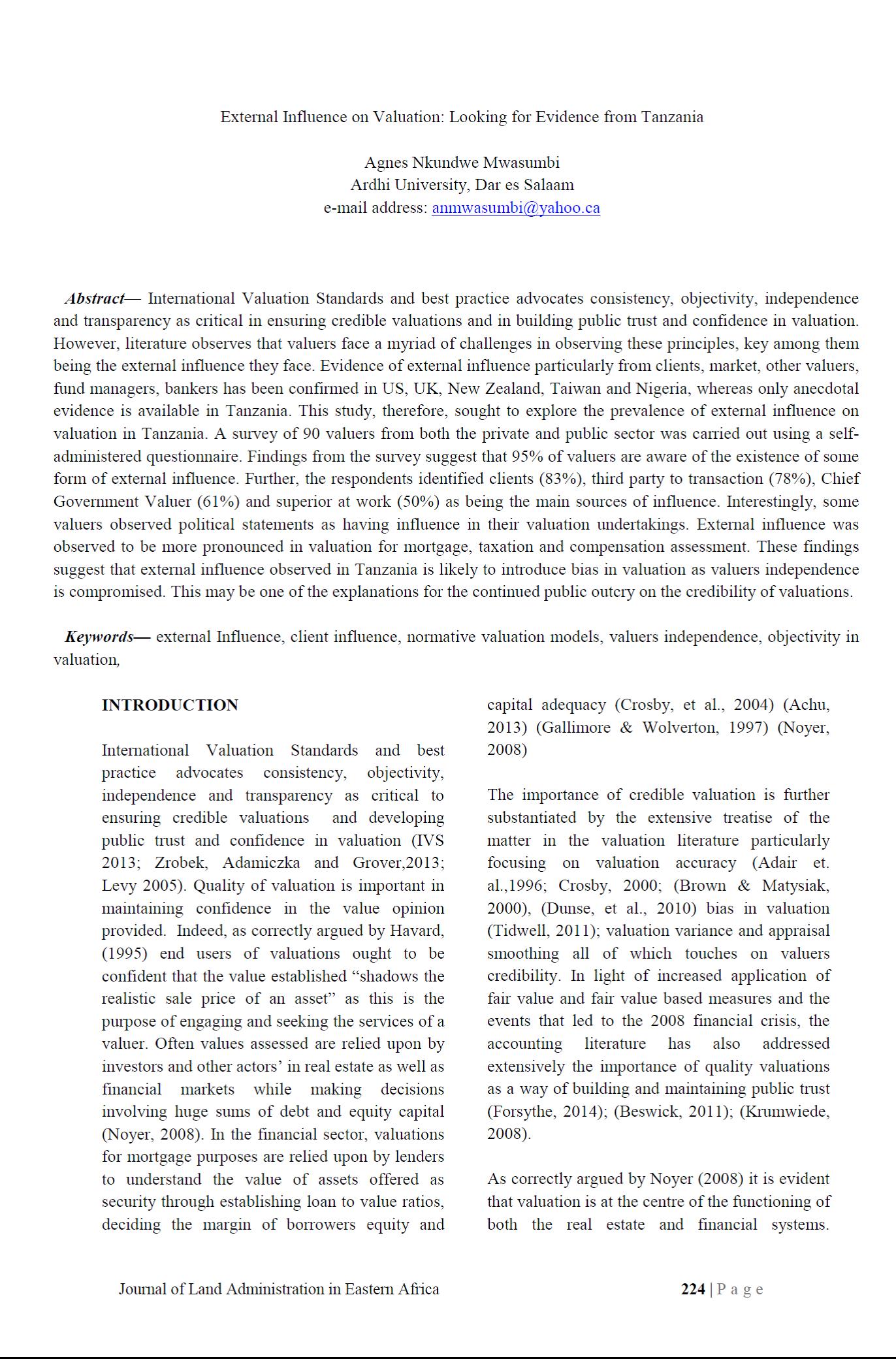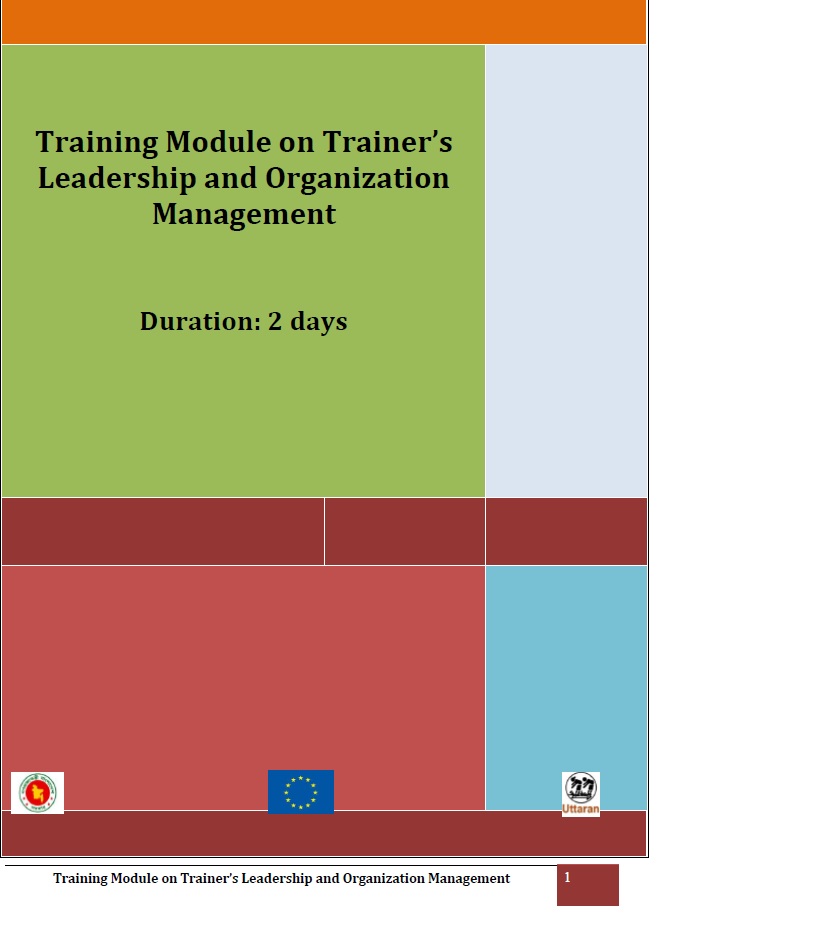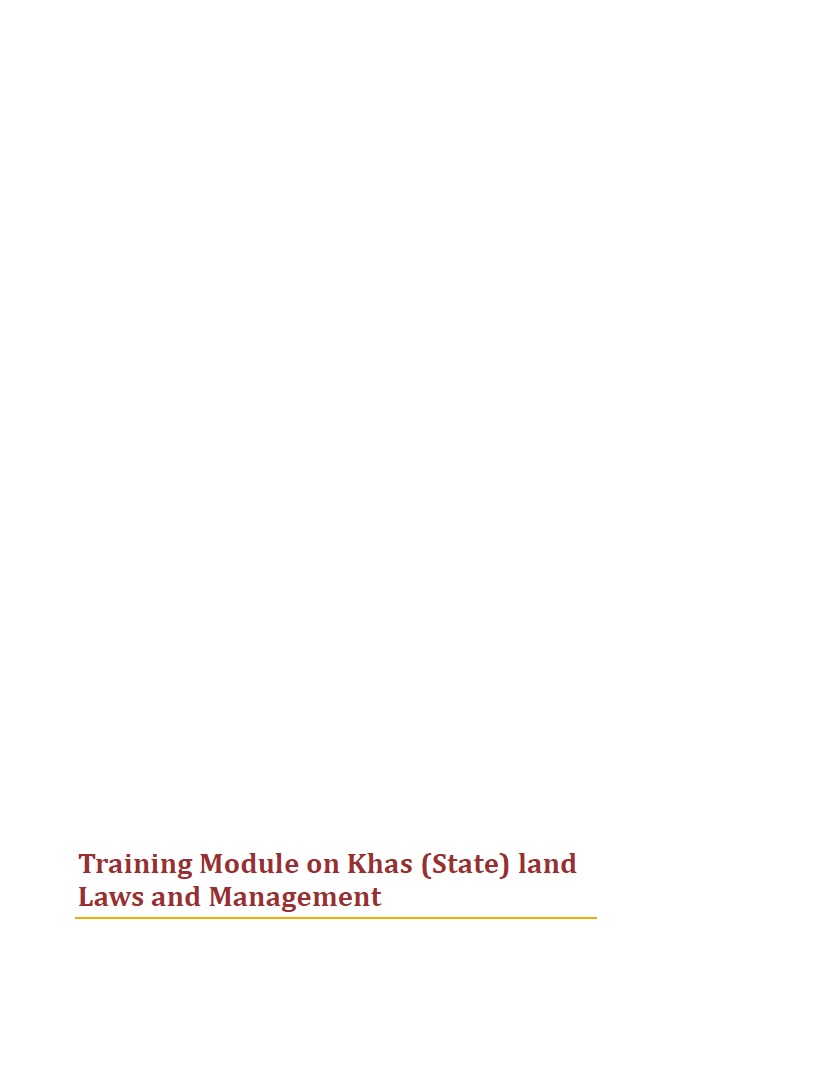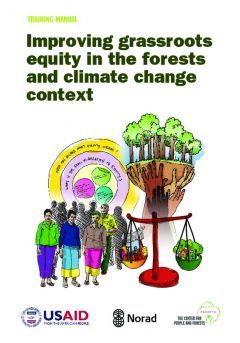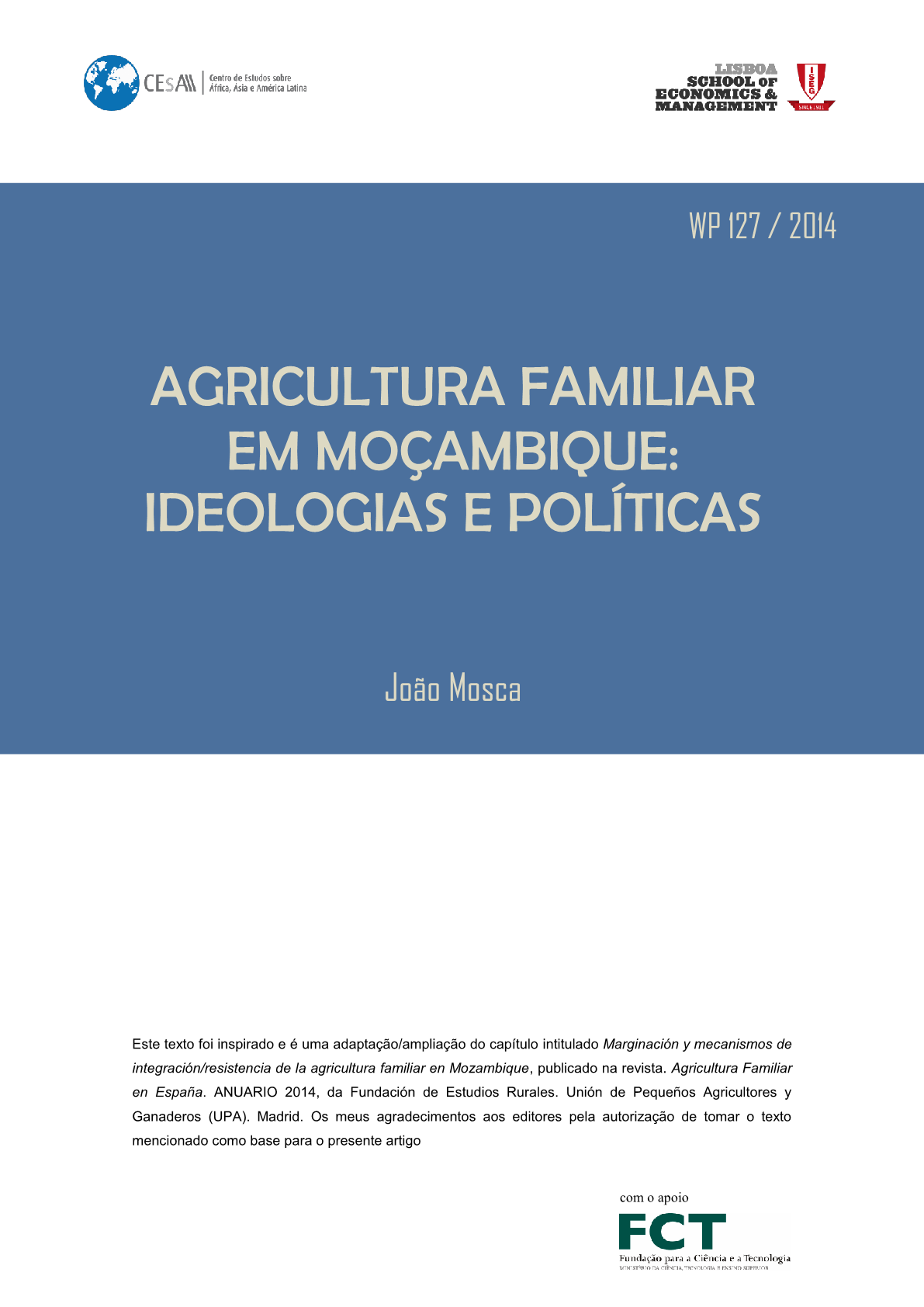External Influence on Valuation: Looking for Evidence from Tanzania
— International Valuation Standards and best practice advocates consistency, objectivity, independence and transparency as critical in ensuring credible valuations and in building public trust and confidence in valuation. However, literature observes that valuers face a myriad of challenges in observing these principles, key among them being the external influence they face.

